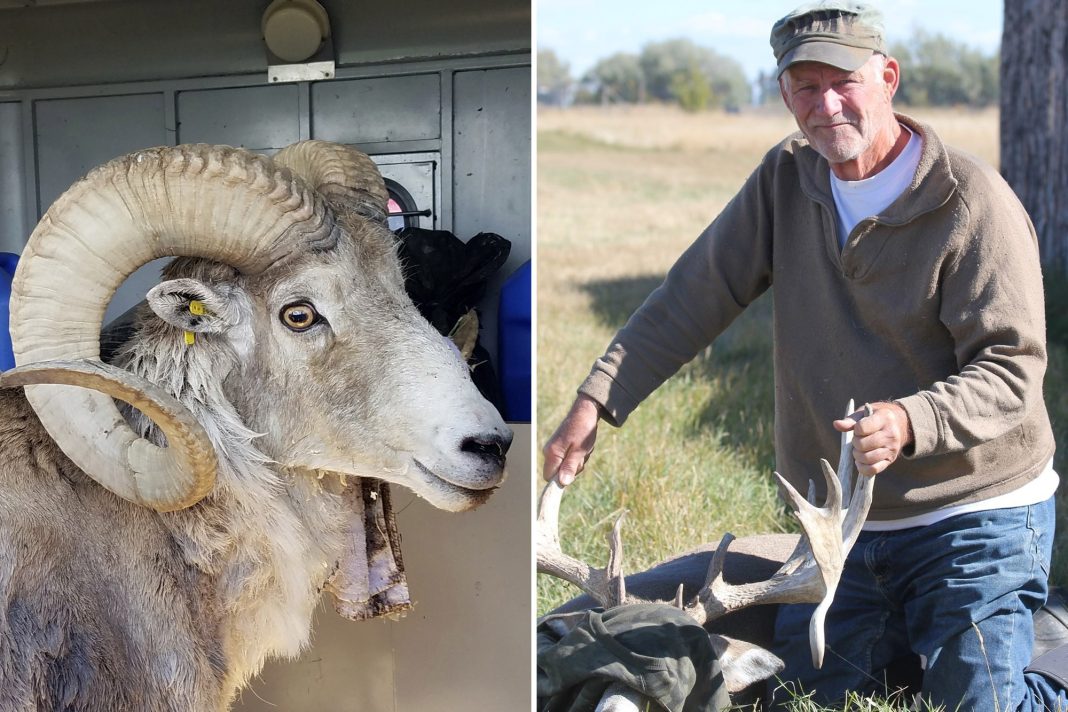In a surprising twist of events that highlights the intersection of wildlife conservation, legal boundaries, and personal ambition, an 81-year-old man from Montana named Arthur “Jack” Schubarth was sentenced to six months in federal prison for his role in an illegal breeding operation. His venture involved the cloning and hybridization of large sheep species, specifically the Marco Polo sheep, an endangered species known for its impressive size and majestic horns. This case raises significant questions not only about wildlife regulations but also the ethical implications of manipulating animal genetics for trophy hunting.
U.S. District Court Judge Brian Morris grappled with the complexities of Schubarth’s case during sentencing. While acknowledging the defendant’s age and previously clean record, the judge emphasized the need for a penalty that would deter similar future actions. “You were so focused on getting around those rules you got off track,” Morris remarked, underlining the seriousness of Schubarth’s transgressions. The judge imposed a $20,000 fine and mandated a $4,000 payment to the U.S. Fish and Wildlife Foundation, in addition to the prison term.
At the heart of Schubarth’s illegal activities was his operation at Sun River Enterprises LLC, a 215-acre ranch that specialized in breeding “alternative livestock” for private hunting preserves. This venture, which had been in operation since 1987, took a darker turn in October 2019 when Schubarth illegally obtained tissue and reproductive material from trophy-sized Rocky Mountain bighorn sheep and Marco Polo sheep—a species that can weigh up to 300 pounds and boasts curled horns reaching five feet. The illegal cloning endeavor aimed to create hybrid sheep that would appeal more to trophy hunters, ultimately valuing the animals involved at over $250,000.
Schubarth’s attorney, Jason Holden, painted a sympathetic portrait of his client, detailing how the fallout from this case devastated Schubarth’s life, reputation, and family. “I think this has broken him,” Holden stated, seeking a probationary sentence based on Schubarth’s prior contributions to animal care. In a poignant moment before sentencing, Schubarth expressed his regret, stating, “I will have to work the rest of my life to repair everything I’ve done.” This admission reflects a broader theme often seen in cases where ambition leads individuals to cross ethical lines—how the pursuit of personal goals can cloud judgment and lead to unintended consequences.
The case drew attention from federal wildlife agencies, with Sarah Brown from the U.S. Department of Justice calling for significant penalties due to the widespread nature of the illegal breeding operation. This sentiment is echoed in recent studies highlighting the critical importance of wildlife regulations, which are designed to protect endangered species and maintain ecological balance. According to the World Wildlife Fund, illegal wildlife trade poses one of the greatest threats to biodiversity today, a sentiment that resonates deeply within the context of Schubarth’s actions.
In terms of the future, Judge Morris laid down strict conditions for Schubarth’s probation. He is prohibited from breeding game stock for three years and must ensure that any remaining hybrid sheep on his ranch are sent for slaughter by the end of the year, with meat donated to a food bank. This decision serves as a reminder of the delicate balance between human interests and wildlife preservation.
The involvement of co-conspirators in Schubarth’s case—and the ongoing investigation into their roles—suggests a larger network that may have been operating outside legal boundaries. As Schubarth prepares to serve his sentence, the implications of this case extend far beyond one man’s actions; it underscores a pressing need for stricter enforcement of wildlife protection laws and a reevaluation of the ethical considerations surrounding animal cloning and hybridization.
In reflecting on the moral complexities of wildlife management and genetic manipulation, one is reminded of the words of conservationist Aldo Leopold: “The last word in ignorance is the man who says, ‘I don’t need to know that.’” Schubarth’s case serves as a cautionary tale about the perils of overlooking the law in pursuit of personal ambitions, illustrating the critical importance of adhering to regulations designed to safeguard our planet’s wildlife.

